UNF Faculty Domains is a project at the University of North Florida and managed by our Center for Instruction and Research Technology (CIRT).
UNF Faculty Domains is about offering faculty “the opportunity to create academic publishing spaces using modern web applications”. As a UNF faculty member diving into this initiative, you may now be considering all of the things that you want to include and link to on your web space. Your audience may include other academic colleagues, news organizations looking for expertise, students who attend UNF or are considering it, and the Internet community in general. However, you may be overlooking, certainly unintentionally, a group of visitors who literally look at your website in a completely different way.
It is estimated that over 20% of adults in the U.S. have some type of disability (https://www.cdc.gov/media/releases/2015/p0730-us-disability.html). When it comes to viewing content on the Web, a person’s disability can manifest itself in many types of obstacles to understanding information being presented. We recommend you begin with the WebAIM organization’s introduction to accessibility to learn about web accessibility. WebAIM provides a web accessibility evaluation tool (WAVE), as well as web browser extensions (plugins) that allow you to check your site for accessibility errors, alerts, and features. WebAIM also offers Accessible Site Certification. The World Wide Web Consortium (W3C) also has a Web Accessibility Perspectives page that can help you “learn about the impact of accessibility and the benefits for everyone in a variety of situations.”
UNF Faculty Domains offers two web applications, WordPress and Omeka, that offer strategies for enabling accessibility in sites built with those tools. While WordPress makes available an entire handbook of resources for accessibility, we recommend you begin with the WordPress Accessibility Quick Start Guide which outlines some of the topics related to building a web page and providing maximum accessibility. Omeka provides several resources on the Omeka Accessibility Statement page.
Since the W3C released version 2 of their Web Content Accessibility Guidelines (WCAG) in 2008, WordPress has continued to support those guidelines in their core software. While it can be somewhat overwhelming at first to understand what needs to be considered in creating an accessible site, many accessibility focused themes and plugins are available to make the process of building a WordPress website manageable.
More information is available on UNF’s ADA Web Accessibility page.
Photo by Samuel Zeller on Unsplash

UNF Faculty Domains is a project at the University of North Florida and managed by our Center for Instruction and Research Technology (CIRT).
